Turmeric For Hair Growth
Enjoy the goodness of this spice with medicinal value and know how to use it on your hair.
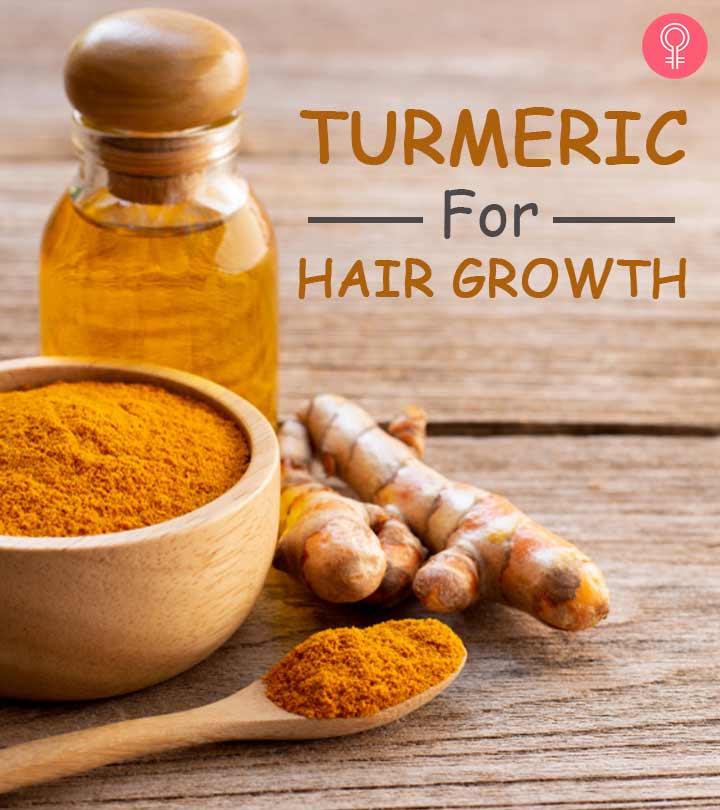
Image: StyleCraze
Anecdotal evidence suggests that turmeric has been used in Ayurveda as a natural remedy for its therapeutic and medicinal advantages for over two millennia. Recently, many people have discovered the huge merit of using turmeric for hair growth. Some even swear that its antiseptic properties can reduce dandruff. There is substantial evidence to back these claims. Keep reading to learn how turmeric can induce hair growth and its other hair care benefits.
 Know Your Ingredient: Turmeric
Know Your Ingredient: TurmericWhat Is It?
A common spice derived from the root of the turmeric plant, used extensively in Southeast Asian cuisine.
What Are Its Benefits?
Has anti-inflammatory properties, protects natural hair color, and promotes scalp health.
Who Can Use It?
Can be consumed by everyone, except those with gallbladder problems, GERD, bleeding disorders, and infertility.
How Often?
Can be consumed daily in moderate amounts of 500 to 2000 mg.
Caution
Can stain the skin and trigger allergic reactions. Pregnant and nursing women and those on blood-thinning medication should avoid it.
In This Article
Is Turmeric Good For Hair?
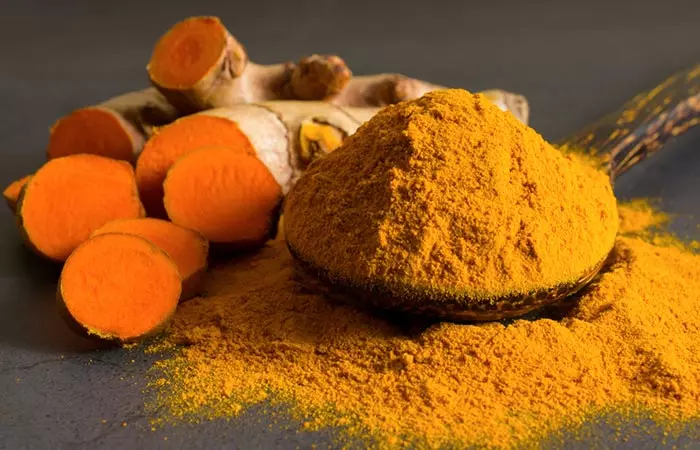
The list of Turmeric benefits is long, including many health advantages. However, the common Turmeric benefits include improving hair and scalp health and reducing hair loss. It is often used in hair masks to treat scalp issues, such as dandruff, psoriasisi, and even mild acne. This herbal treatment is an excellent home remedy that can help with scalp nourishment. But when it comes to hair growth, little is known about its effectiveness.
What does science say? Read on to know.
Key Takeaways
- Turmeric is effective in improving hair and scalp health and may help treat scalp issues like dandruff, psoriasis, and mild acne.
- The curcumin in turmeric helps in the development of blood vessels which in turn may improve blood circulation and stimulate hair growth.
- Turmeric should not be kept on hair for too long as it may harden and pull out hair strands.
Benefits Of Turmeric For Hair

- Helps Treat Dandruff: Research shows that turmeric, when paired with coconut oil, can be used as an antifungal treatment for dandruff. The mixture could prevent hair loss, scales on the scalp, and itching caused by Pityrosporum ovale, a fungus known to cause dandruff. However, in the study, this mixture was found to be less effective than a 2% ketaconazole shampoo (1).
- Improves Blood Flow: One major cause of hair loss could be low blood circulation (2). The curcumin in turmeric also helps in the development of blood vessels (3). Turmeric may improve blood circulation and stimulate hair growth (4).
- Fights Inflammation: Turmeric contains curcumin that offers anti-inflammatory support. It may help heal wounds on the scalp and soothe redness or inflammation. The spice also has antimicrobial and anti-androgenic properties (5). Curcumin also provides antioxidant support against the damage caused by free radicals. It can also prevent follicular regression (5).
- Preserves Hair Color: In a study, a dietary supplement of curcumin was found to help keep hair from turning gray (6). It can be used as a vegetable hair dye as well (7).
- Treats Scalp Issues: Curcumin can also help treat skin disorders that can affect the scalp, including acne vulgaris, dermatitisi A common skin inflammation and irritation caused by allergy, pollutants, genetics, or skin damage. , alopecia, and scalp psoriasis (8), (9), (10). Due to this, its use is an oft-quoted beauty tip to prevent skin irritation and improve skin and hair health.
As per this study, around 2% of the general population face a lifetime risk of developing alopecia areata (AA). The prevalence of AA varies between 0.1% and 0.2% based on geographic location and ethnicity. Adult patients with a family history of AA have an estimated prevalence ranging from 0% to 8.6%. Early onset AA, occurring between the ages of 5 and 10, often presents as a more severe form of the condition.
- Improves Hair Growth: Research shows that curcumin induced hair growth in a murine hair cycle (11).
 Did You Know?
Did You Know?Turmeric has several benefits for hair health. In the following section, we will explore the various ways you can use turmeric to achieve the same.
How To Use Turmeric For Hair Growth?
1. Egg, Honey, and Turmeric Mask
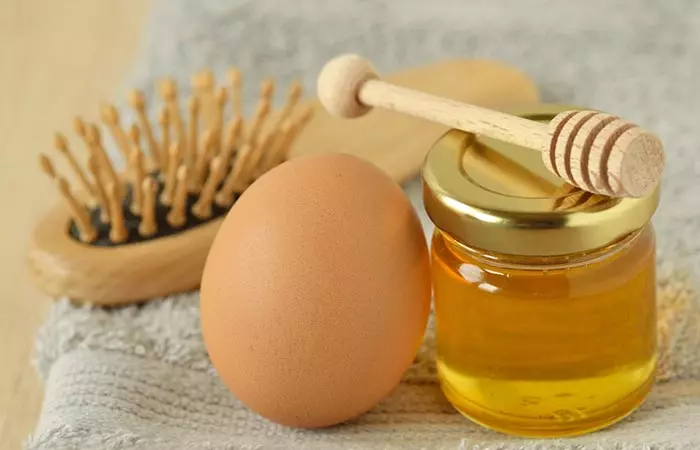
You Will Need
- Eggs, 2
- Honey, 2 tablespoons
- Turmeric, 2 tablespoons
Prep Time
5 minutes
Processing Time
30 minutes
Procedure
- Mix the eggs, honey, and turmeric in a bowl.
- Apply the blend to your hair thoroughly.
- Leave it on for about 30 minutes.
- Wash it off with some warm water and regular shampoo.
How Often
Once a week
Why It Works
Eggs are rich in protein (12). Research also shows that the egg yolk may stimulate hair growth (13). Honey is a good emollienti A substance or ingredient that helps moisturize the skin by forming a protective layer on the skin. and protects the hair from dandruff and the associated hair loss (14).
2. Milk, Honey, and Turmeric Mask
You Will Need
- Milk, 1 cup
- Honey, 2 to 3 tablespoons
- Turmeric, 3 to 4 tablespoons
Prep Time
2 minutes
Processing Time
30 minutes
Procedure
- Mix all the ingredients in a bowl.
- Apply the mixture to the hair thoroughly.
- Leave it on for 20 to 30 minutes.
- Wash it off with warm water and shampoo.
How Often
Once a week
Why It Works
Milk is rich in protein. It can help treat hair damage, hair loss, and baldness (15). Honey can be used to treat hair loss, hair damage, baldness, and alopecia. It also preserves hair endings, treats scalp acne, and prevents head lice and dandruff (15).
Melissa Denise, a beauty and lifestyle vlogger, used a similar turmeric mask and felt it was not worth the hassle. She had to wash her hair three times to get it all out. She says, “The positive thing about it is first when I started rinsing my hair out, it was very manageable and I didn’t detangle my hair at all but I could just run my fingers so and I felt like I had conditioner in my hair so I will say that but other than that I believe it like I wouldn’t be doing it (i).” Wash the mask off with warm water and a mild no-sulfate shampoo for best results.
3. Coconut Oil And Turmeric Mask
You Will Need
- Coconut oil, 4 to 5 tablespoons
- Turmeric, 2 tablespoons
Prep Time
2 minutes
Processing Time
45 minutes
Procedure
- Mix the coconut oil and turmeric.
- Apply the mixture to the hair thoroughly.
- Leave it on for 45 minutes.
- Wash it off with warm water and shampoo.
How Often
Once every week
Why It Works
Coconut oil is known to stimulate hair growth (16). It penetrates the hair shaft and prevents protein loss from hair (17). This also may help improve blood flow and hair density and thickness. It prevents protein loss even in damaged hair. It is a well-known hair moisturizer too. It can also be used to combat dandruff when paired with turmeric (2).
4. Lemon Juice And Turmeric Mask
You Will Need
- Turmeric powder, 2 tablespoons
- Juice of 1 lemon
Prep Time
5 minutes
Processing Time
30-40 minutes
Procedure
- Mix the turmeric and lemon juice in a bowl.
- Apply the paste uniformly on damp hair from roots to tips.
- Put on a shower cap or plastic wrap to allow better absorption and avoid dripping and turmeric stains.
- Leave the hair mask on for about 30-40 minutes.
- Rinse it off thoroughly. It may take a while for all the yellow residue to wash away.
- Follow up with a shampoo for better cleansing and a conditioner to restore moisture in your hair.
How Often
Once or twice a month
Why It Works
Lemon has powerful antioxidant and antifungal properties (18). This may have the potential to keep the scalp clear of dandruff and other infections, allowing the hair follicles to breathe and absorb the nutrients from both these ingredients to grow healthier.
5. Turmeric Shampoo
Turmeric can be added to your regular shampoo. The spice has antimicrobial and antiseptic properties that help cleanse the scalp thoroughly. It also has antifungal properties and can be used to treat dandruff and the associated hair loss.
6. Turmeric Supplements

Research shows that dietary supplements containing turmeric may help treat chronic telogen effluviumi A temporary hair loss condition that occurs after a person has gone through a traumatic event or stressful experience. (19). These supplements are shown to have an effect on scalp hair and may stimulate hair growth.
Though incorporating turmeric into your hair care routine is easy, it is important you exercise caution. The spice may also have certain adverse effects.
Are There Any Side Effects Of Using Turmeric For Hair?
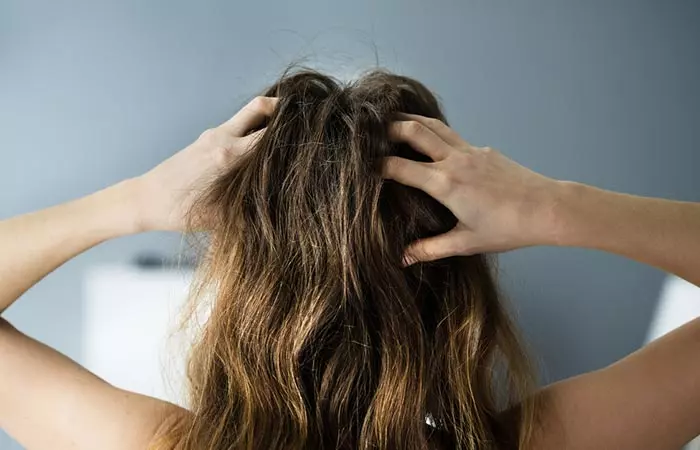
There are a few side effects of turmeric such as if it is kept in the hair for a long time, it may harden the strands and pull them out. This is one reason it is used as a natural hair removal paste for vellus and axillary hair. Applying turmeric to hair may cause adverse effects in some. These could include allergic reactions or itching. The curcumin in turmeric may also cause adverse effects, including rashes (20).
Note: Always do a patch test before topically applying any product to check for allergic reactions or skin irritation, especially if you have a sensitive scalp or an allergy to spices in general.
Does Turmeric Kill Hair Follicles?
While turmeric is used to remove hair from the skin, it does not kill hair follicles. Turmeric could stimulate blood flow and induce hair follicle growth. Turmeric can also be used as a hair cleanser due to its antimicrobial, antioxidant, antiseptic, and anti-inflammatory properties. It keeps the scalp clean from dirt, product residue, build-up or grime.
Does Turmeric Help Treat Alopecia?
A study showed that turmeric might actually aid hair growth. The curcumin in turmeric is anti-androgenic (5). Its anti-androgenic properties keep testosterone from turning into dihydrotestosterone, a process known to cause hair loss. Turmeric also has antioxidant properties that may help curb hair loss caused by free radical damage.
 Trivia
TriviaThe curcumin extracted from Curcuma aeruginosa, a plant from the turmeric family, inhibits 5-alpha reductase (an enzyme) known to cause hair loss in men (20). It may help in the treatment of androgenic alopeciai A permanent, genetic hair loss condition that affects the top and crown of the head in both men and women. . However, more research is warranted to understand similar effects in turmeric.
You may use turmeric on your scalp. But ensure you do a patch test before that. Stop use if you observe any allergic reactions.
Infographic: Turmeric For Hair Growth
Turmeric is touted as one of the best ingredients for skin care and has therapeutic properties. But did you know turmeric is also great for hair growth? It exhibits anti-inflammatory and antibacterial properties that may prevent hair thinning and eliminate dandruff. It helps boost scalp health and protects hair from environmental aggressors. Want to know how to incorporate it into your hair care routine? Check out the infographic below to learn further.
Want to know how to incorporate it into your hair care routine? Check out the infographic below to learn about some easy DIY turmeric hair recipes for your hair.

Illustration: StyleCraze Design Team
Conclusion
There are many benefits of using turmeric for hair growth. It is loaded with nutrients like antioxidants, minerals, and vitamins that are beneficial to the body. It is also beneficial to your hair and skin, keeping them healthy and supple. Turmeric improves scalp blood flow, promoting new hair growth as the hair follicles are nourished. It also deals with dandruff and scalp issues effectively. You can add turmeric to your DIY hair masks and shampoos or take its supplements to reap these benefits. Nevertheless, excessive use may have side effects. If you experience any adverse effects, limit its use and seek medical advice.
Frequently Asked Questions
Is turmeric safe to use on colored hair?
Yes, turmeric can be used on colored hair, however, caution is advised as it may slightly alter lighter shades. Don’t keep the treatments for long and wash hair thoroughly to avoid any residue.
How long does it take turmeric to show noticeable results in hair growth?
Anecdotal evidence suggests that using turmeric hair masks regularly may show visible results within 4-8 weeks. However, it is also important to note that the effects of turmeric on hair growth might differ from person to person depending on their hair type and length of hair.
Can turmeric be used on all hair types and textures, or are there certain hair types that may not benefit from its use?
Turmeric may not be suitable for everyone as it may cause an allergic reaction or experience skin irritation. Those with light-colored or blonde hair should be careful while using turmeric as it may temporarily stain the hair a yellow or orange color.
How does turmeric compare to other natural or alternative hair growth treatments, such as coconut oil or aloe vera?
All three natural ingredients are beneficial for promoting healthy hair growth. Turmeric may help treat scalp disorders and alopecia (9), (10). Coconut oil is rich in protein and fatty acids that may help hydrate dry or damaged hair while aloe vera may help reduce dandruff and hair loss (22), (23). You can choose any ingredient as per your hair type and needs.
Illustration: Turmeric For Hair Growth
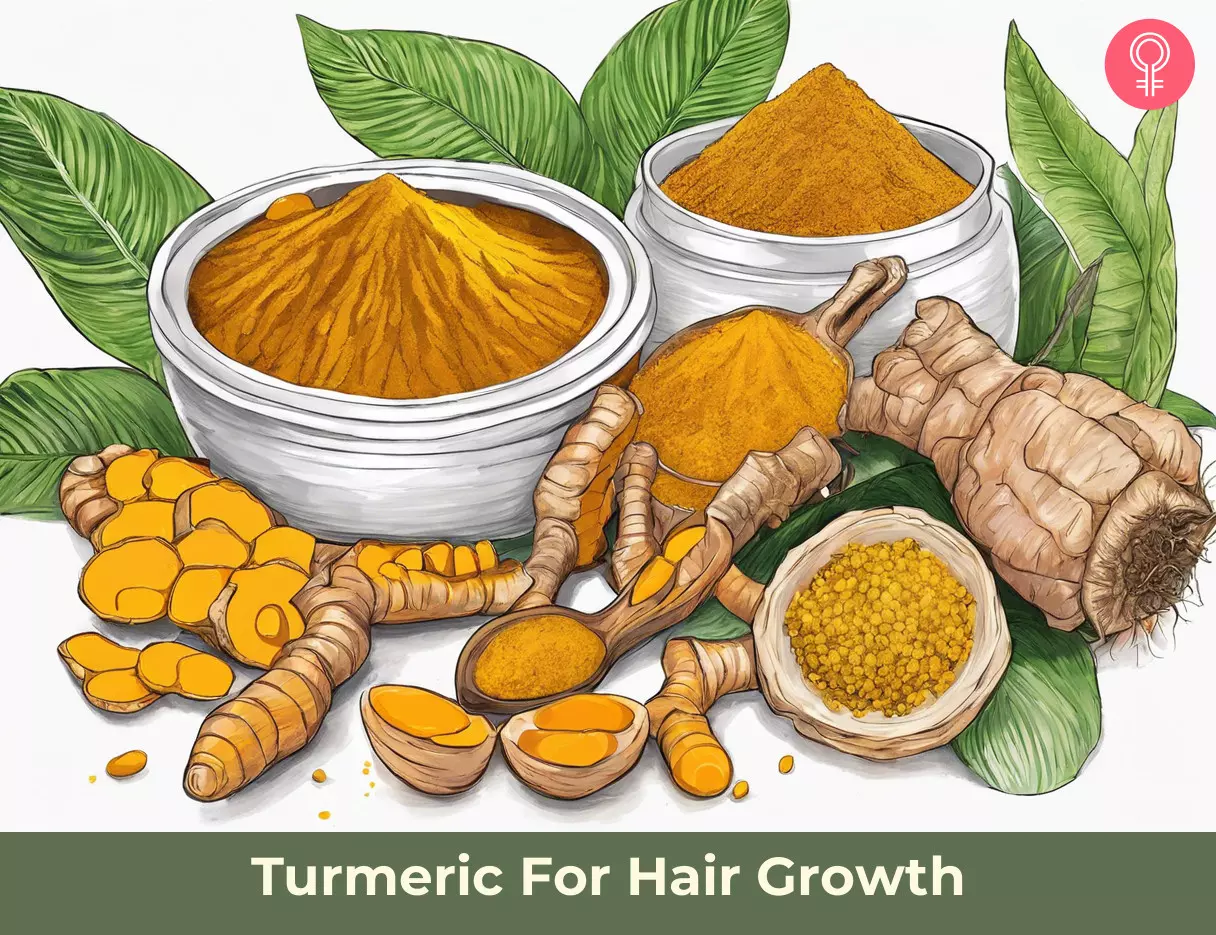
Image: Stable Diffusion/StyleCraze Design Team
Turmeric is a powerful spice with amazing benefits for hair and skin. Check out the video below to learn how it can help promote hair growth and improve your skin health.
Personal Experience: Source
StyleCraze's articles are interwoven with authentic personal narratives that provide depth and resonance to our content. Below are the sources of the personal accounts referenced in this article.
i. Turmeric Hair Maskhttps://www.youtube.com/watch?v=hjAgotsIgm8
References
Articles on StyleCraze are backed by verified information from peer-reviewed and academic research papers, reputed organizations, research institutions, and medical associations to ensure accuracy and relevance. Read our editorial policy to learn more.
- Determination of Effectiveness Traditional Cosmetics of Coconut Oil and Turmeric as Anti-Dandruff,
https://www.atlantis-press.com/proceedings/iconhomecs-19/125934898 - Clinical Evaluation of Cactus (Cereus Grandiflorus) Enriched Hair Oil for Hair Fall Disorders,
https://madridge.org/journal-of-dermatology-and-research/mjdr-1000113.pdf - Effects of Curcumin on Vessel Formation Insight into the Pro- and Antiangiogenesis of Curcumin,
https://www.ncbi.nlm.nih.gov/pmc/articles/PMC6607718/ - Turmeric: A Herbal and Traditional Medicine,
https://www.researchgate.net/publication/268268687_Turmeric_A_Herbal_and_Traditional_Medicine - Complementary and Alternative Treatments for Alopecia: A Comprehensive Review,
https://karger.com/sad/article/5/2/72/291462/Complementary-and-Alternative-Treatments-for - Effect of Curcumin on Grey Hair Reduction,
http://saspublisher.com/wp-content/uploads/2017/10/SJAMS-510E4140-4141.pdf - A Review of the Natural Resources Used to Hair Color and Hair Care Products,
https://www.jpsr.pharmainfo.in/Documents/Volumes/vol9Issue07/jpsr09071701.pdf - Evidence Of Curcumin And Curcumin Analogue Effects In Skin Diseases: A Narrative Review,
https://www.researchgate.net/publication/326830448_Evidence_of_curcumin_and_curcumin_analogue_effects_in_skin_diseases_A_narrative_review - Potential of Curcumin in Skin Disorders,
https://www.ncbi.nlm.nih.gov/pmc/articles/PMC6770633/ - Effects of Turmeric (Curcuma longa) on Skin Health: A Systematic Review of the Clinical Evidence,
https://onlinelibrary.wiley.com/doi/10.1002/ptr.5640 - Skin & Hair Developmental Biology,
https://www.jidonline.org/article/S0022-202X(16)30787-4/pdf - The Golden Egg: Nutritional Value, Bioactivities, and Emerging Benefits for Human Health,
https://www.ncbi.nlm.nih.gov/pmc/articles/PMC6470839/ - Naturally Occurring Hair Growth Peptide: Water-Soluble Chicken Egg Yolk Peptides Stimulate Hair Growth Through Induction of Vascular Endothelial Growth Factor Production,
https://pubmed.ncbi.nlm.nih.gov/29583066/ - Therapeutic and Prophylactic Effects of Crude Honey on Chronic Seborrheic Dermatitis and Dandruff,
https://pubmed.ncbi.nlm.nih.gov/11485891/ - Ethnopharmacological Survey of Home Remedies Used for Treatment of Hair and Scalp and Their Methods of Preparation in the West Bank-Palestine,
https://www.ncbi.nlm.nih.gov/pmc/articles/PMC5499037/ - Formulation and Finding Out the Efficacy of the Herbal Hair Oil Over Simple Coconut Oil (purified) – a Formulation and Clinical Study in Bangladesh,
https://ijpsr.com/bft-article/formulation-and-finding-out-the-efficacy-of-the-herbal-hair-oil-over-simple-coconut-oil-purified-a-formulation-and-clinical-study-in-bangladesh/?view=fulltext - Effect of Mineral Oil, Sunflower Oil, and Coconut Oil on Prevention of Hair Damage,
https://pubmed.ncbi.nlm.nih.gov/12715094/ - Citrus limon (Lemon) Phenomenon—A Review of the Chemistry, Pharmacological Properties, Applications in the Modern Pharmaceutical, Food, and Cosmetics Industries, and Biotechnological Studies
https://www.ncbi.nlm.nih.gov/pmc/articles/PMC7020168/ - Treatment of Telogen Effluvium Using a Dietary Supplement Containing Boswellia Serrata, Curcuma Longa and Vitis Vinifera: Results of an Observational Study,
https://onlinelibrary.wiley.com/doi/abs/10.1111/dth.12842 - Therapeutic Roles of Curcumin: Lessons Learned from Clinical Trials,
https://www.ncbi.nlm.nih.gov/pmc/articles/PMC3535097/ - Curcuma Aeruginosa, a Novel Botanically Derived 5α-Reductase Inhibitor in the Treatment of Male-Pattern Baldness: a Multicenter, Randomized, Double-Blind, Placebo-Controlled Study,
https://pubmed.ncbi.nlm.nih.gov/21756154/ - Medicinal benefit of coconut oil
https://www.researchgate.net/publication/268805677_Medicinal_benefit_of_coconut_oil - Aloe vera : A Potential Herb and its Medicinal Importance
https://www.jocpr.com/articles/aloe-vera–a-potential-herb-and-its-medicinal-importance.pdf
Read full bio of Dr. Shruti Chavan
Read full bio of Anjali Sayee
Read full bio of Eshna Das
Read full bio of Krati Darak






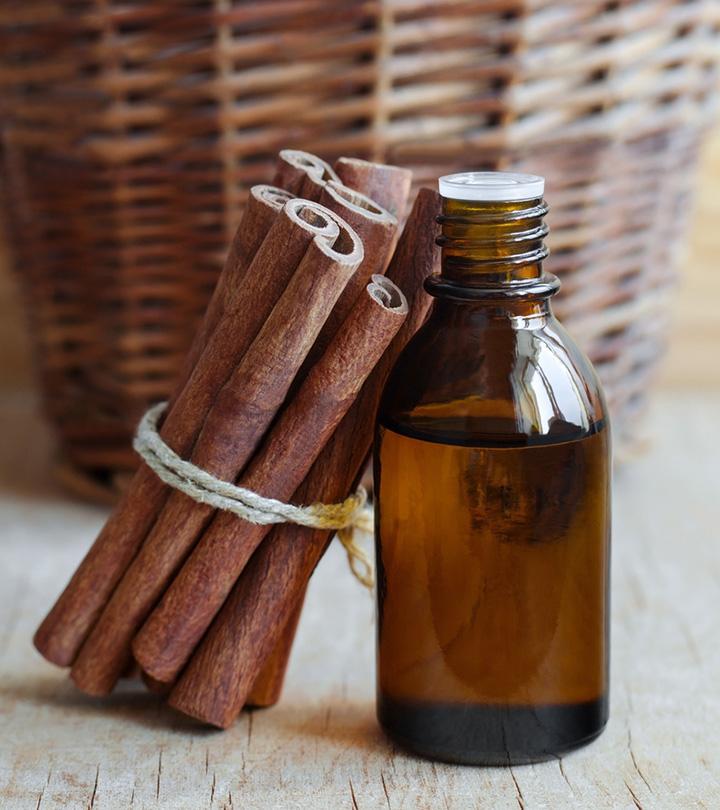
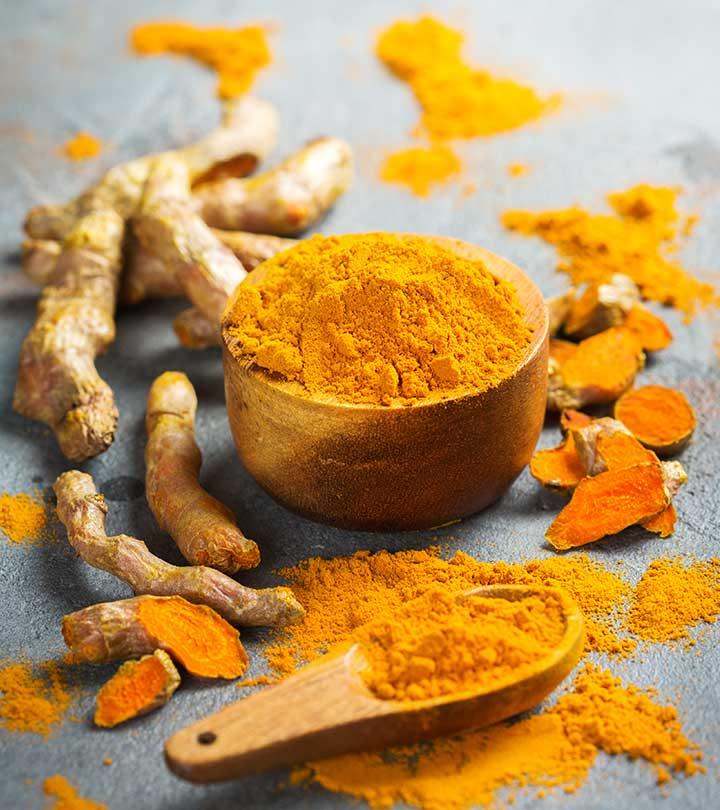


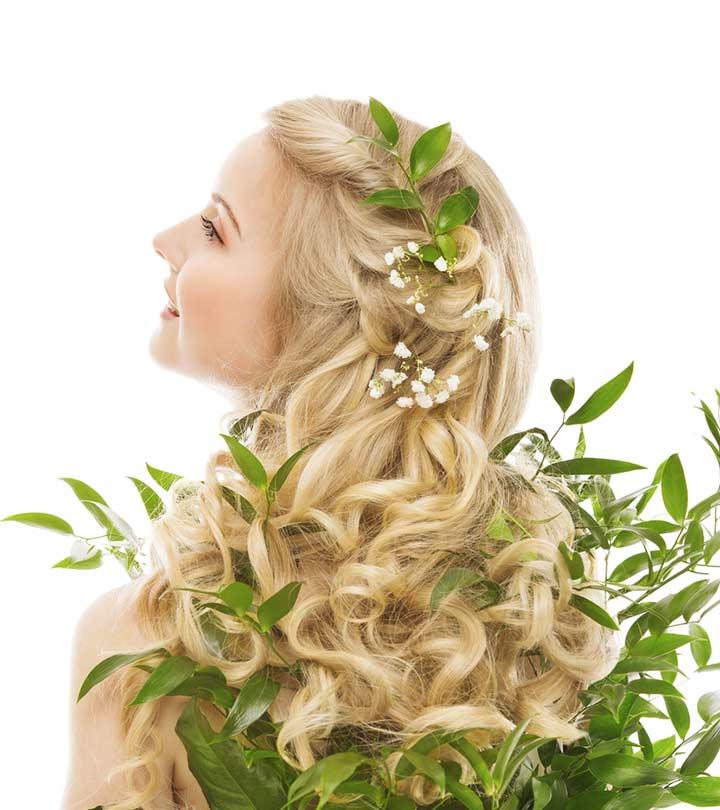
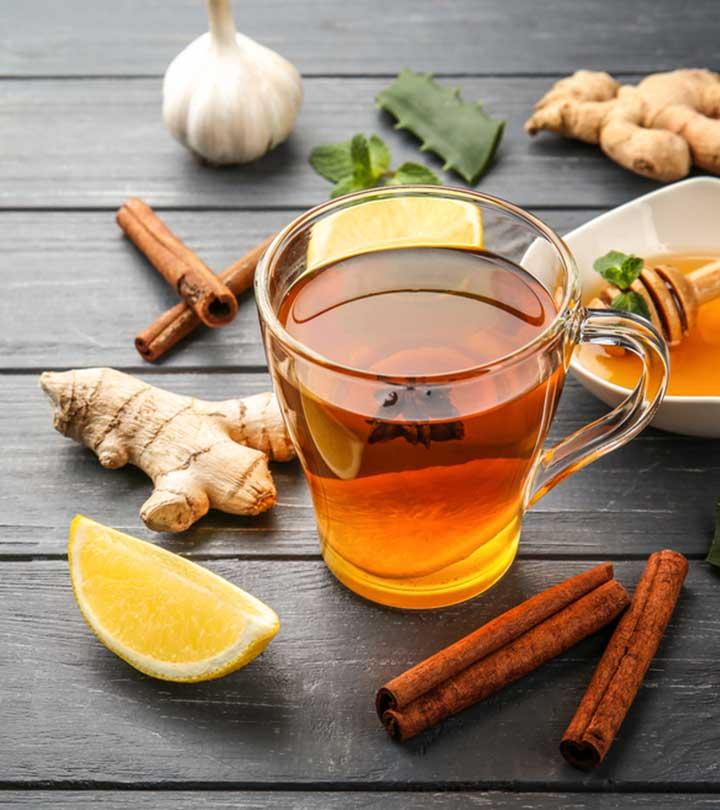

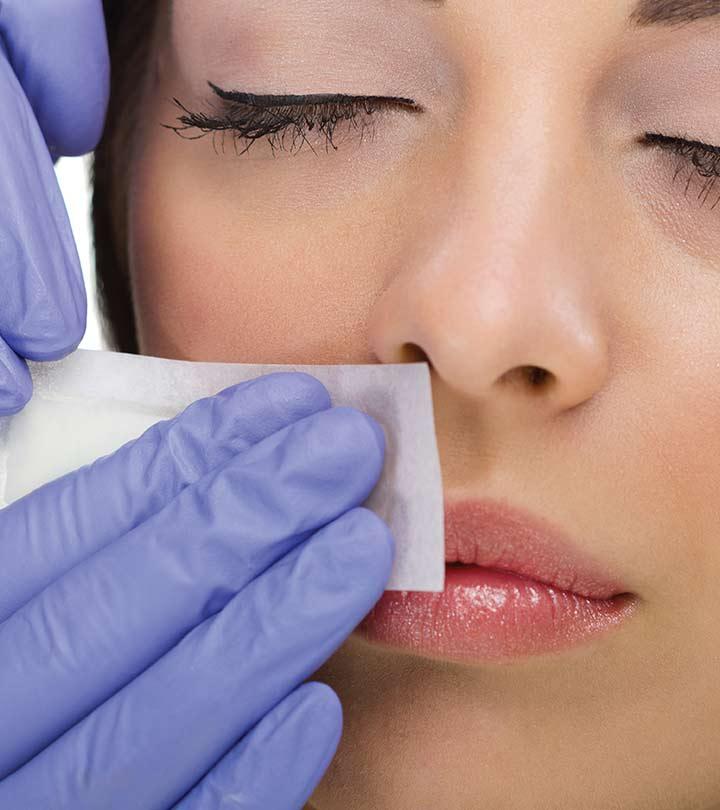
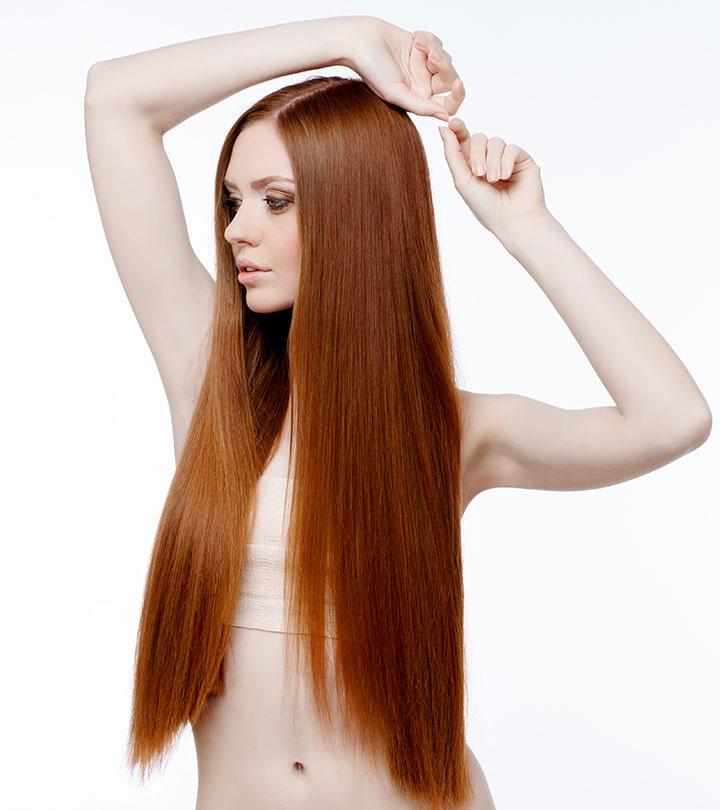
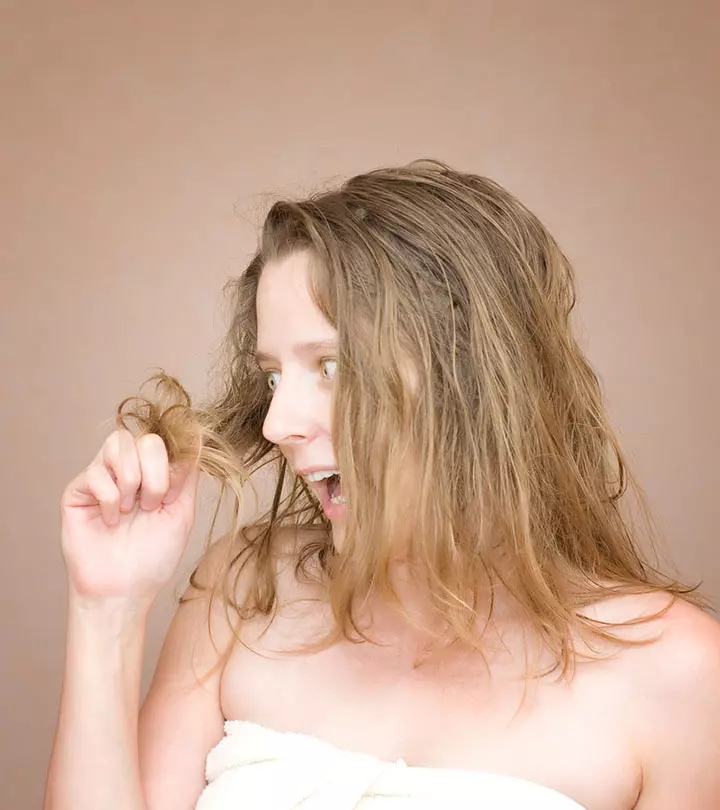
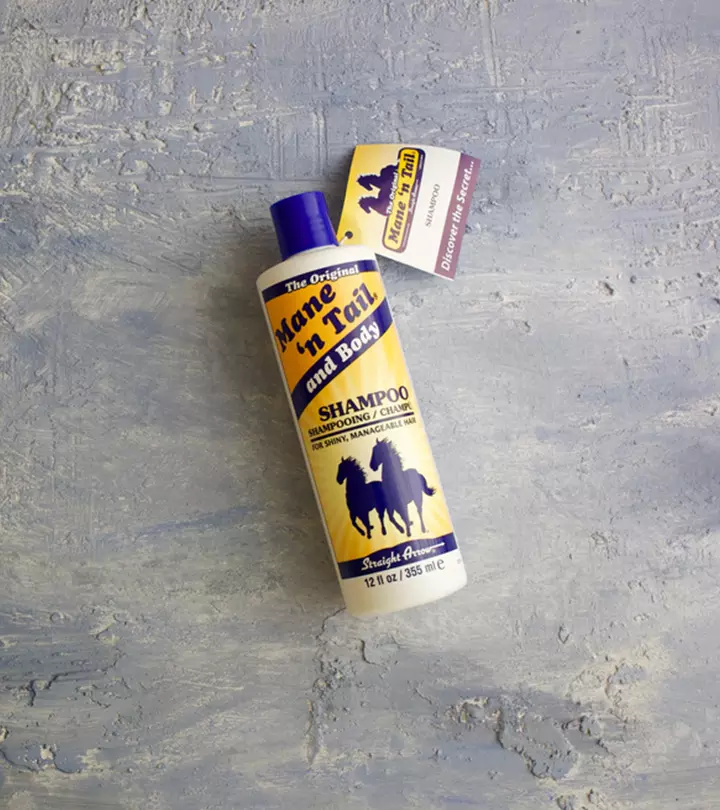

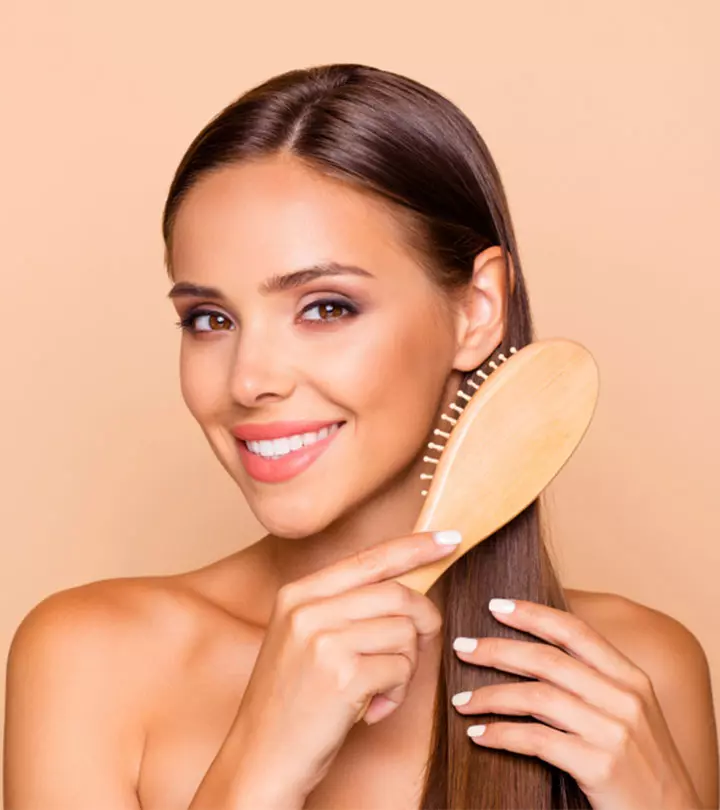
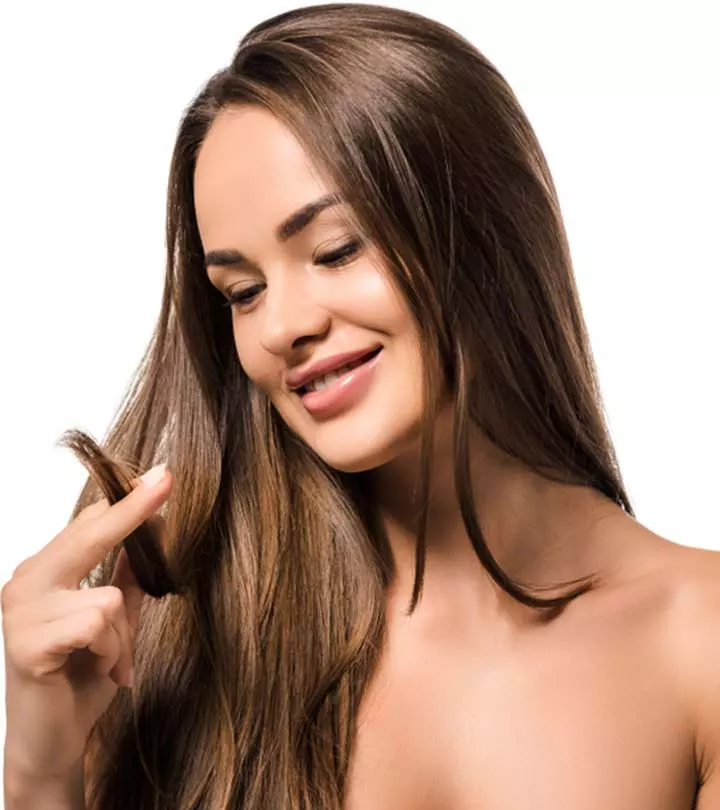
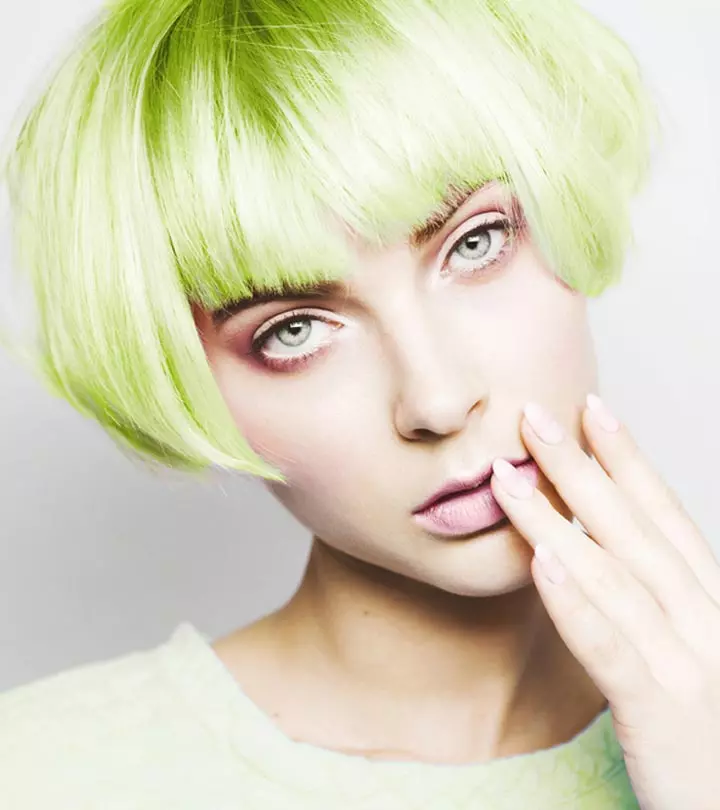
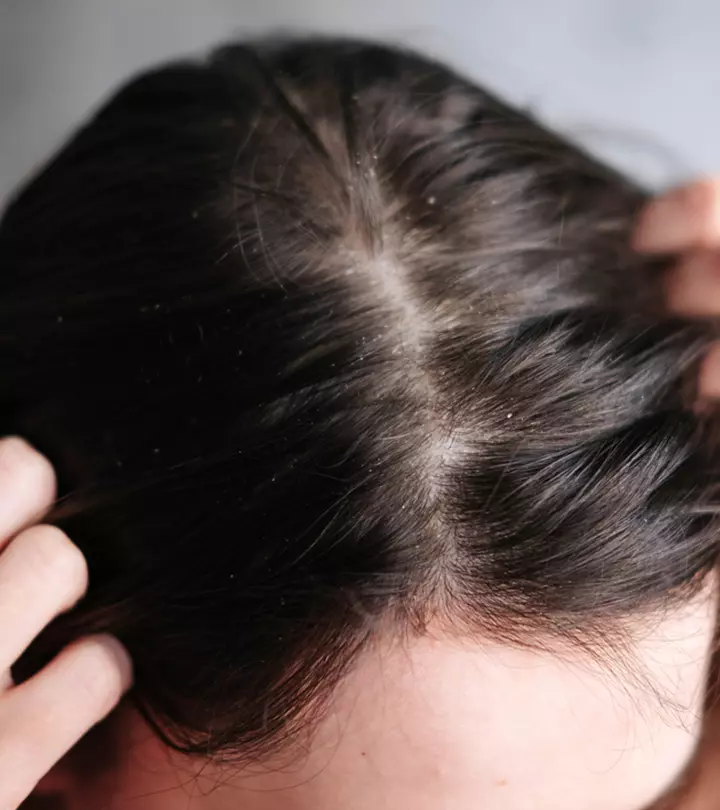

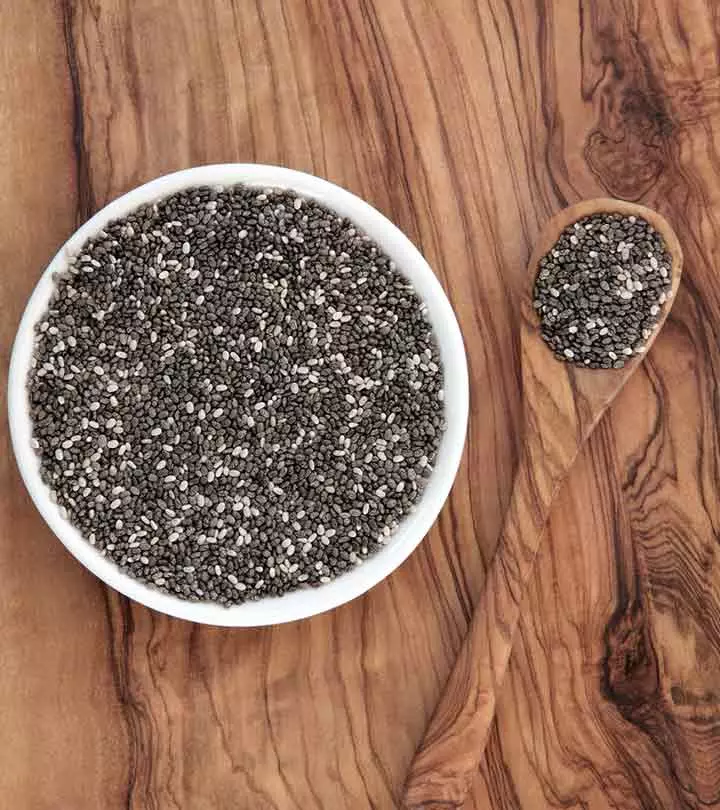
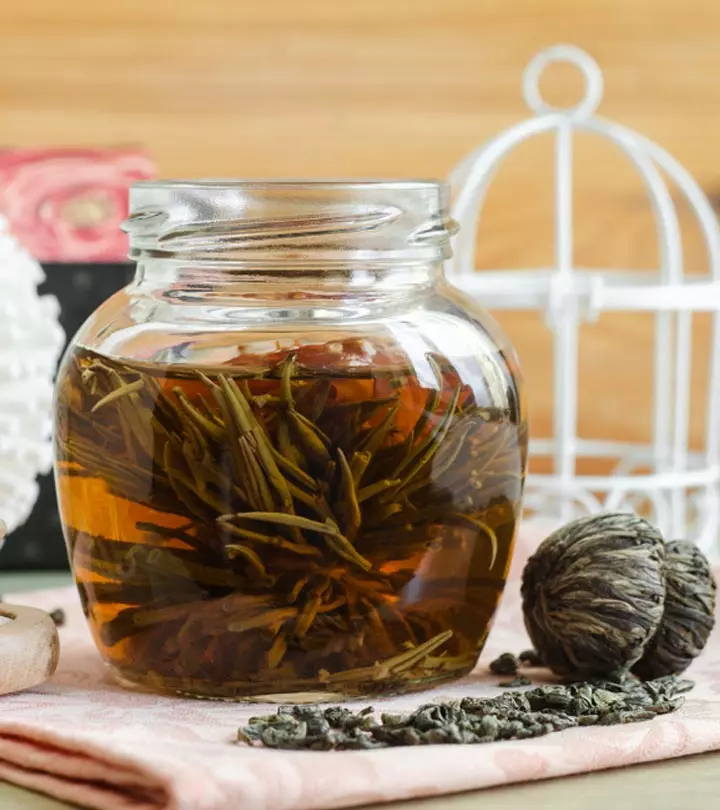
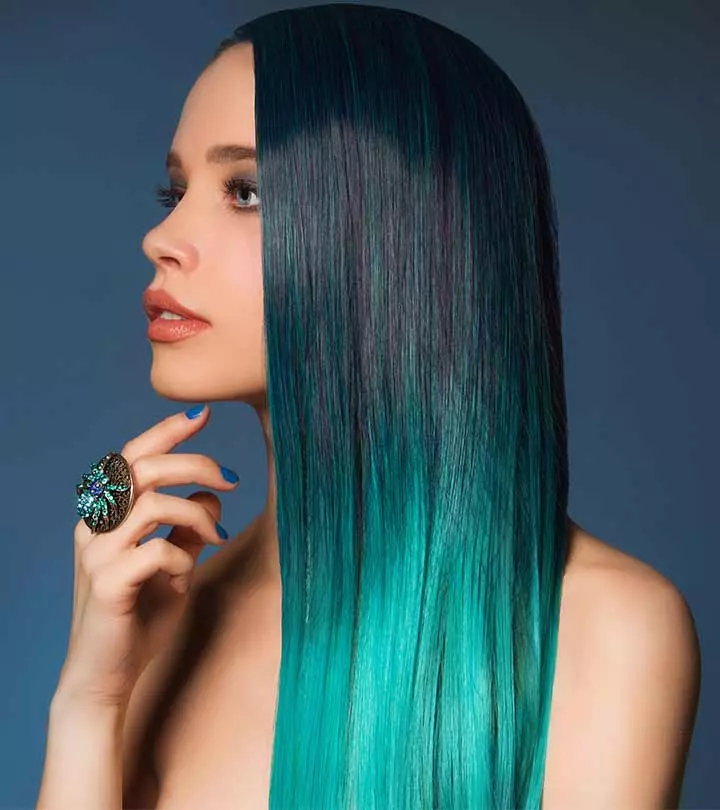

Community Experiences
Join the conversation and become a part of our empowering community! Share your stories, experiences, and insights to connect with other beauty, lifestyle, and health enthusiasts.